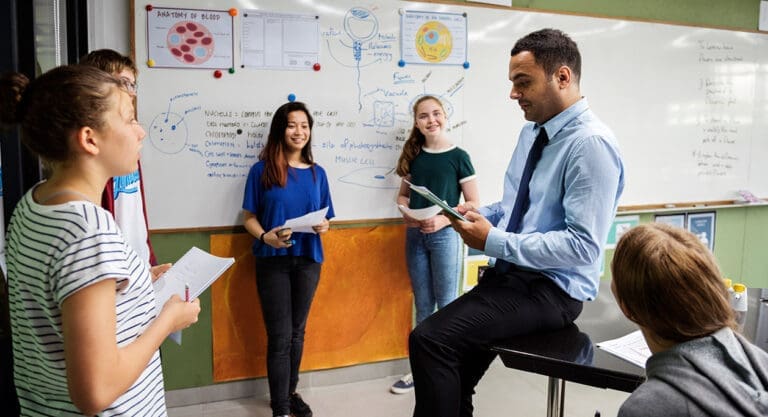As educators, a foundational component of who we are and what we do is that we want our students to be successful. The curriculum we will teach is filled with important content, concepts, and skills we want our students to learn. We also want our students to become proficient, engaged, and self-reliant learners. While the content itself is certainly important, learning how to learn, developing independent learning skills and habits, and navigating learning challenges will likely be more determinative of lifelong success than the facts and formulas found in formal assessments.
We also know that when our entire focus is on students absorbing curricular content and preparing for formal assessments, our students are likely to miss the authentic, real-world relevance of what they learn. Additionally, they are likely to quickly forget much of the content once it has been assessed.
Our greater challenge is to develop learners who possess the skills to learn independently, the mindsets necessary to learn in a variety of environments, and the drive to learn for intrinsic reasons. As we contemplate the beginning of another year, whether we have already begun school or not, we might consider what mindsets students need to develop and how we can help students become skilled, proficient, motivated learners. Here are five learning mindsets that deserve to be on our agenda.
Ownership: When students see learning as something they do for themselves, rather than to comply with or please others, their efforts grow and learning outcomes improve. Most learning students do outside of school has ownership built into it in some way, such as when it is connected to a student’s personal interests or job, but school-based learning often does not. We can coach students to take ownership of their learning by giving then meaningful choices in that learning, by connecting their learning to uses and purposes that hold value for them individually, and by giving them a shared role in tracking their progress.
Confidence: Lack of confidence can prevent students from engaging in challenging tasks and lead them to abandon their efforts when they encounter difficulties or feel stuck. Initially, our coaching may be as simple as helping students take the first steps to get started. Then, we can help them build their confidence by coaching them to connect good strategies and smart efforts to overcoming challenges. We might even coach students to recall past experiences in which they took risks and persisted to succeed despite the difficulties they encountered and challenges they faced. Confidence grows with progress, support, and success.
Resilience: Resilience helps students to recover quickly from missteps, setbacks, and disappointments. However, resilience is more than just getting back up after being knocked down; it also includes learning from the experience so that reengagement is more insightful and strategic. Our coaching needs to extend beyond encouragement for recommitment to thoughtful reflection, meaningful analysis, and considered adjustment.
Focus: When students learn how to truly focus, their productivity increases. Multitasking, distractions, and interruptions make learning more challenging and can shorten learning retention. Our coaching might include helping students to set learning goals, having students practice gradually extending the amount of time they are able to concentrate, and helping students to structure and arrange their study environment to minimize distractions. Putting a phone screen-down on the desk (or better yet, in a backpack) or removing a smartwatch can be a tremendous start!
Organization: Organization is the infrastructure that helps students to make the best use of their effort and maximize their progress. Time management helps students to accomplish more with the limited time they have. Knowing where they can locate needed tools and resources reduces the effort necessary to complete tasks. Maintaining a structure for files, correspondence, and other information can reduce memory lapses and missed deadlines. Our coaching to acquire organizational tools, habits, and strategies can help students to maintain learning momentum and reduce distractions and frustrations.
These five mindsets—ownership, confidence, resilience, focus, and organization—not only can make our students better learners, but they can significantly improve their chances for a life of success and satisfaction.



